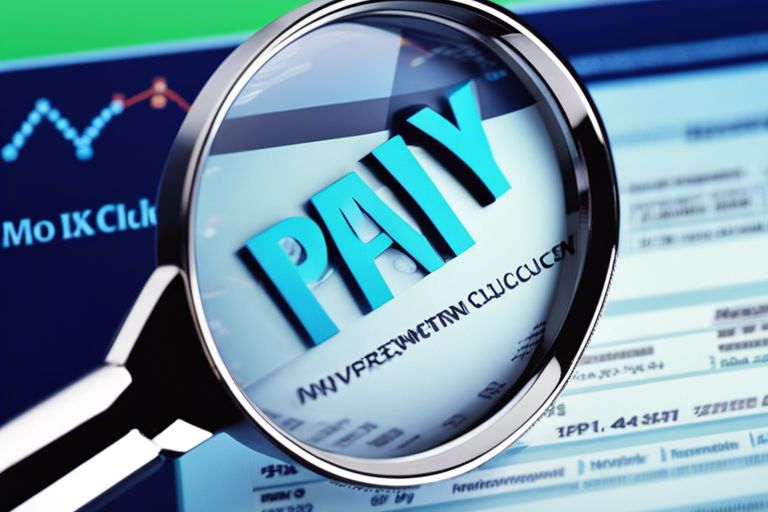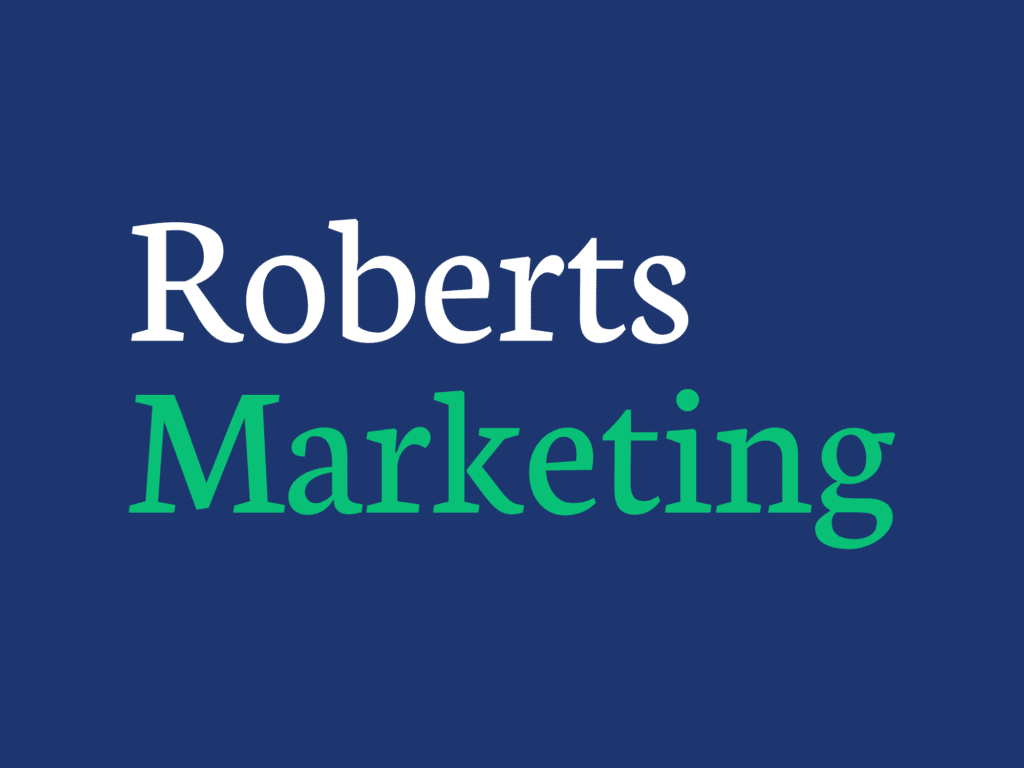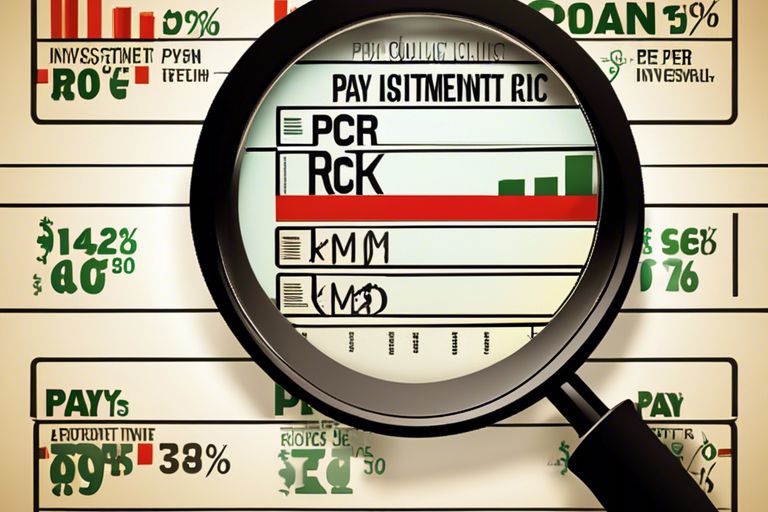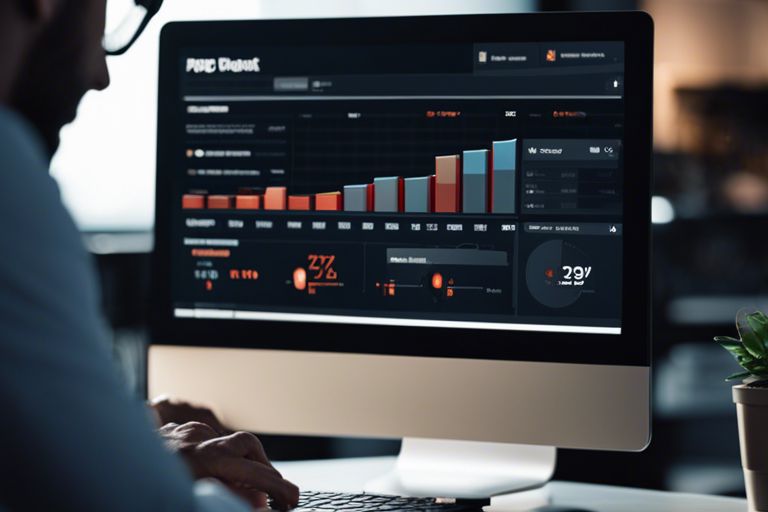You know you’re investing in PPC campaigns, but do you know how to measure their return on investment (ROI)? Understanding how to measure the success of your pay-per-click advertising efforts is crucial for optimizing your marketing strategy and budget. In this blog post, we will guide you through the key steps to effectively measure your PPC ROI and ensure that your campaigns are delivering the results you desire.
Key Takeaways:
- Set Clear Goals: Before measuring PPC ROI, clearly define your goals and what you want to achieve through your PPC campaigns.
- Track Conversions: Use tools like Google Analytics to track conversions and attribute them to your PPC campaigns to determine their effectiveness.
- Calculate ROI: To measure PPC ROI, calculate the ratio of revenue generated to the cost of your PPC campaigns. This will help you understand the profitability of your advertising efforts.

Understanding PPC ROI Measurement
Defining ROI in PPC Advertising
While PPC ROI is a crucial metric, many advertisers struggle to define it clearly. Essentially, ROI in PPC advertising is the return on investment generated from your pay-per-click campaigns. It is calculated by dividing the profit generated from the campaign by the total cost and expressing it as a percentage.
Why Measuring ROI is Crucial for PPC Success
Success in PPC advertising hinges on the ability to measure ROI effectively. Without knowing which campaigns are generating profit and which are not, it’s impossible to optimize your strategies for better results. Understanding ROI helps in making informed decisions, allocating budgets wisely, and ultimately, driving more conversions.
Another reason why measuring ROI is crucial for PPC success is that it allows you to determine the overall profitability of your campaigns. By tracking ROI, you can identify areas where you are underperforming and take corrective actions to improve your return on investment.
Factors Affecting PPC ROI
Even though PPC campaigns can be an effective way to drive traffic and generate leads, several factors can impact your return on investment (ROI). Understanding these factors is crucial to optimizing your PPC strategy and maximizing your ROI.
- Conversion Tracking and Attribution
- Cost per Conversion and Cost per Click
- Keyword Selection and Ad Group Structure
Knowing how these elements influence your PPC ROI is vital for making informed decisions about your advertising budget and campaign management. For a detailed guide on calculating PPC ROI, check out PPC ROI: How to Calculate It – Tactica.
Conversion Tracking and Attribution
Conversion tracking and attribution are critical components of measuring the success of your PPC campaigns. By accurately tracking conversions and attributing them to the right channels, you can make data-driven decisions to improve ROI.
Cost Per Conversion and Cost Per Click
There’s no denying that cost per conversion and cost per click are key metrics that directly impact your PPC ROI. Understanding these costs and optimizing them can lead to a more efficient and profitable advertising campaign.
A well-implemented cost per conversion and cost per click strategy can help you allocate your budget effectively and target high-converting keywords and ad groups.
Keyword Selection and Ad Group Structure
Assuming you have set up proper conversion tracking, keyword selection, and ad group structure can significantly impact your PPC ROI. Plus, organizing your keywords into relevant ad groups and ensuring they align with your target audience’s search intent can boost your campaign’s performance and ROI.
Tips for Accurate PPC ROI Measurement
All businesses running PPC campaigns aim to measure their Return on Investment accurately. Here are some tips to help you achieve that:
- Ensure your conversion tracking is properly set up to track all conversions accurately.
- Use dynamic call tracking to attribute phone call conversions to your PPC campaigns.
- Include offline conversions in your measurement to get a more comprehensive view of your ROI.
Perceiving the intricacies of PPC ROI measurement can help you make informed decisions to optimize your campaigns for better results. If you want to explore deeper into the topic, check out PPC ROI: 7 Formulas + Expert Tips to Increase Conversions.
Setting Up Conversion Tracking in Google Ads
There’s no doubt that accurate conversion tracking is vital for measuring the success of your PPC campaigns. By setting up conversion tracking in Google Ads, you can attribute conversions to specific ads, keywords, and campaigns, enabling you to optimize your strategies for better results.
Using Google Analytics for PPC ROI Insights
Some businesses leverage Google Analytics to gain more insights into their PPC campaigns’ performance and ROI. By linking your Google Ads and Analytics accounts, you can track user behavior, engagement, and conversions post-click, providing a comprehensive view of your campaign performance.
Another way to utilize Google Analytics for PPC ROI insights is by setting up goals and e-commerce tracking. This allows you to measure conversions, revenue, and ROI generated from your PPC campaigns accurately, helping you make data-driven decisions to enhance your ROI.
Avoiding Common PPC ROI Measurement Mistakes
Little oversights in PPC ROI measurement can lead to inaccurate data and misguided decisions. Avoid common mistakes like not considering lifetime value, ignoring assisted conversions, and failing to integrate all conversion sources for a holistic view of your ROI. By being mindful of these pitfalls, you can ensure your PPC ROI measurement is precise and actionable.
How to Optimize Your PPC Campaigns for Maximum ROI
Not sure how to calculate your PPC ROI? Check out this How To Calculate PPC ROI | Digital … for a step-by-step guide. Once you have your ROI data in place, it’s time to optimize your PPC campaigns for maximum returns.
Identifying and Optimizing High-Performing Ad Groups
Maximum ROI can be achieved by identifying and optimizing high-performing ad groups. Analyze the data to pinpoint which ad groups are driving the most conversions and revenue. Allocate more budget and resources to these top-performing ad groups to maximize your ROI.
Refining Targeting and Bidding Strategies
Some of the most effective ways to boost PPC ROI involve refining targeting and bidding strategies. By analyzing keyword performance, audience demographics, and geographic data, you can fine-tune your targeting to reach the most relevant audience. Experiment with different bidding strategies, such as automated bidding or manual bidding, to optimize for the best results.
Understanding the nuances of various bidding options, like cost-per-click (CPC), cost-per-impression (CPM), or cost-per-acquisition (CPA), can help you make informed decisions to increase ROI.
Leveraging Ad Extensions and Ad Copy Optimization
Any successful PPC campaign involves leveraging ad extensions and optimizing ad copy for maximum impact. By utilizing ad extensions like site links, callouts, and structured snippets, you can provide more information to users and improve ad visibility. A/B test different ad copy variations to see which ones resonate best with your target audience and drive higher click-through rates.
Groups of ad extensions can also be tailored to specific campaigns or products/services to enhance visibility and drive more qualified leads.
Conclusion
As a reminder, measuring PPC ROI is vital for understanding the effectiveness of your campaigns and optimizing your marketing budget. By tracking key metrics, analyzing data, and calculating the return on investment, you can make informed decisions to improve the performance of your pay-per-click advertising efforts and drive better results for your business.
FAQ
Q: What is PPC ROI?
A: PPC ROI stands for Pay-Per-Click Return on Investment. It is a metric used to measure the effectiveness and profitability of a PPC advertising campaign.
Q: How is PPC ROI calculated?
A: To calculate PPC ROI, you can use the following formula: (Revenue from PPC Campaign – Cost of PPC Campaign) / Cost of PPC Campaign * 100. This will give you a percentage that represents the return on investment for your PPC advertising.
Q: Why is measuring PPC ROI important?
A: Measuring PPC ROI is important because it helps you understand the profitability of your advertising efforts. By knowing how much revenue you are generating compared to the cost of your ads, you can make informed decisions about your PPC strategy and budget allocation.





